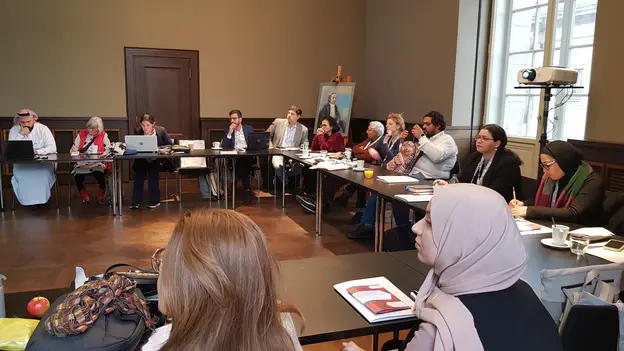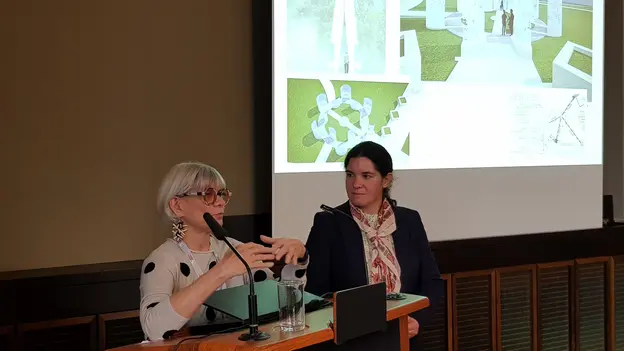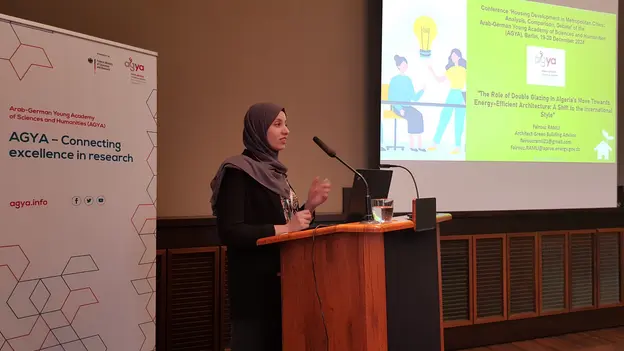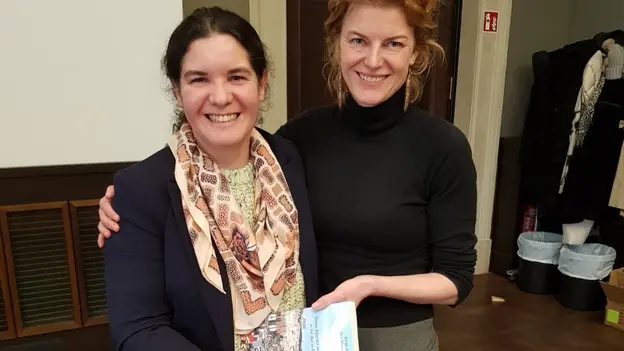Tandem Project
Housing Development in Metropolitan Cities
Conference on expanding metropolises, and increasing uniformity
Life in many metropolitan cities today is run through with challenges, related to rapid urbanisation, population growth, economic pressures and different forms of conflict. Around the world, the state of and access to housing is a major issues, in many places reaching crisis. To meet growing demand, urban planners, and architects increasingly turn to prefabrication processes and one-size-fits-all urban models, often resulting in copy and paste architectural design. Standardised, mass-produced residential structures result in monotonous landscapes that fail to meet diverse social and cultural needs. The tension between efficiency and architectural innovation limits opportunities for creative, context-sensitive designs. Overcoming this, developing inclusive, diverse cities, is a major question of our time, and one that was addressed at an international conference held in Berlin in December
Coming to Berlin to rethink urban housing around the world
Initiated by AGYA members Dr. Lilia Makhloufi and Dr. Claire Bullen, an international conference on ʻHousing Development in Metropolitan Cities: Analysis, Comparison, Debateʼ was held in Berlin, with a view to cross disciplinary and national perspectives on this urgent question. The event brought together urban planners, architects, policy advisors and one social scientist from 14 different countries, - Algeria, Belgium, Egypt, Germany, India, Iran, Iraq, Jordan, Morocco, Oman, Pakistan, Tunisia, USA and Yemen - to engage in critical discussions at the intersection of housing, urban development and governance, cultural heritage and cultural identity, social dynamics, and sustainability across urban contexts around the world.
Integrating the traditional into contemporary urban design
The importance of learning from and protecting traditional architectural practices was a key concern raised in several presentations. From the exploration of sustainable dwelling models in Old Mosul to the adaptation of traditional Omani architecture in response to climate change, discussions showed how local design principles can have valuable insights for contemporary housing solutions. Other examples, including from India, showed how traditional dwellings can provide solutions to the demand for housing in ways that are deeply rooted in local culture and geography and often offer sustainable alternatives to more modern constructions.
Building for the future: Energy-efficient housing in a changing climate
From across diverse national settings, participants underlined the urgent need for more sustainable development in cities and provided examples of initiatives being tested in diverse national settings. This included policy interventions to promote residential energy savings in Oman, the potential of rolling out double glazing in Algeria, and the adaptation of Morocco's architectural heritage to climate change. A case study from Jordan highlighted the (in)congruencies between sustainability objectives and sociocultural norms shaping the country’s housing sector.
From city centres to the suburbs: The changing urban landscape
The trend towards suburbanization was another important topic. Case studies from Cairo and Pakistan’s Bahria Town drew out some of the social, economic, and environmental implications of the migration of populations to suburban areas. This trend raises critical questions about the future of metropolitan cities, especially in terms of infrastructure, governance, and equitable resource allocation.
Post-war reconstruction, art and memory: Restoring collective identity
The importance of integrating cultural expression into the process of urban renewal was a recurring theme throughout the event. Reflecting on the place of art and memorials within urban landscapes, presentations on cities affected by conflict, including in Algeria, Croatia, Germany and Iraq, underscored how when rebuilding cities architectural design and artistic interventions can have a key role to play in efforts to re-forge a collective sense of belonging.
Debating the future of urban housing
Speaking as disciplinary “outsider”, Claire Bullen, anthropologist and sociologist noted that despite contrasting national, regional and cultural contexts, there is considerable convergence amongst these city makers from across the world, in their belief in the importance of sustainable, adaptable and affordable housing and some of the solutions proposed. Across all regions, the importance of integrating social, cultural, and environmental considerations into housing development was emphasized. At the same time, people were highly aware about how particular national contexts – with different priorities given to investment in architecture, urban planning, heritage and the environment – affected the possibilities of realising this.
Whether through designing housing that respects historical heritage, promoting energy-efficient solutions, or fostering inclusive policies, attention has to be given to the diversity of local contexts and can pay attention to affordability, flexibility, and adaptability of people’s culture and needs when planning housing for growing metropolitan areas. Moreover, greater efforts must be made in increasing inhabitants’ participation into all stages of the housing planning and development process - and convincing policy makers of the importance of doing so, if accessible and decent housing for the future is to be provided.
AGYA remains committed to fostering international collaboration and advancing research that addresses the complex issues of urbanization and housing development. The knowledge shared during this conference will continue to shape the discourse around sustainable, inclusive, and resilient urban housing in the years to come, not least through the valuable work of each and every conference participant.
- Disciplines involved
- Architecture, Urban Planning, Sociology, Anthropology
- Date of Event
- 19 - 20 December 2024
- Venue
- Berlin-Brandenburg Academy of Sciences and Humanities (BBAW), Berlin, Germany
- Project Title
- Analysis of Housing and Built Environments: An Interdisciplinary Perspective between Algeria, France, and Germany (Part I and Part II)
- Year
- 2024
- Funding Scheme
- Tandem Project
- Countries Involved
- Algeria, Germany
- AGYA Publication
- Housing, Heritage and Urbanisation in the Middle East and North Africa
- Urban Heritage and Sustainability in the Age of Globalisation
- Tangible and Intangible Heritage in the Age of Globalisation





